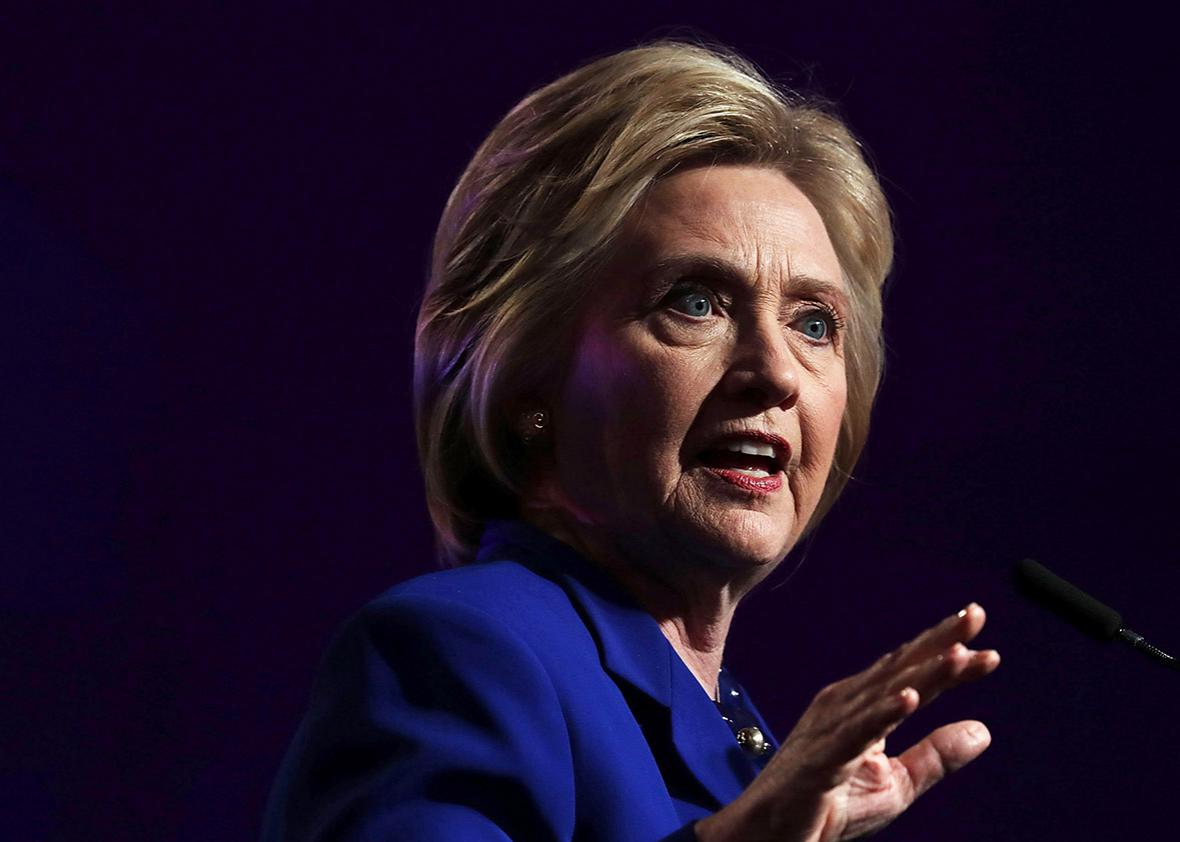Sunday’s mass shooting at Pulse, an LGBTQ nightclub in Orlando, has revived a longstanding debate about gun control and the terrorist watch list. Omar Mateen, the shooter, was previously placed on the list—which is maintained by the FBI—but subsequently removed. In response, Democrats have resuscitated their campaign, defeated by Republicans last year, to ban those on the terrorist watch list from purchasing firearms. On Monday, California Sen. Dianne Feinstein told MSNBC that she was re-upping her old efforts at this ban. “I’d like to try again. I hope we will try again,” she said. “We need the American people to support this. The ease with which a potential terrorist can buy a weapon in this country is frightening.” Presumptive Democratic presidential nominee Hillary Clinton also made clear her support for such a ban on Monday: “If you are too dangerous to get on a plane, you are too dangerous to buy a gun in America.”
America has an appalling, unconscionable, and unparalleled gun violence problem. The federal government has proven able in the past to pass gun safety laws—like rigorous licensing requirements and comprehensive backgrounds checks—that have proven to be quite effective at reducing gun violence. Much, much more can and should be done. For example, the federal government should also promptly repeal the outrageously unjust law that protects gun sellers across the country from legal liability when they negligently sell firearms to unqualified purchasers. And Congress should forbid manufacturers from selling weapons of war—guns that have no plausible purpose other than to slaughter vast numbers of humans in as short a time as possible.
What Congress, or the next president, should not do, however, is forbid individuals on the FBI’s terrorist watch list from purchasing firearms. The problem here is largely one of precedent: The Supreme Court has said private gun ownership is protected by the Second Amendment of the Constitution. It has also ruled that the right to bear arms is a “fundamental right” under the 14th Amendment as a component of the “liberty” protected by the due process clause. As I explained in December:
The Supreme Court’s ahistorical, atextual reading of the Second and 14th Amendments as guarantors of an individual right to bear arms may be deeply flawed. But limiting any right, no matter how specious, based on undisclosed, mistake-ridden lists is even more unsound. The Constitution is anchored by the promise of due process; so long as gun ownership is considered an aspect of liberty, the government must not revoke it unilaterally, with no opportunity for appeal. Civil libertarians should push to abolish the terror watch lists, not expand their reach.
If the government can revoke your right to access firearms simply because it has decided to place you on a secret, notoriously inaccurate list, it could presumably restrict your other rights in a similar manner. You could be forbidden from advocating for causes you believe in, or associating with like-minded activists; your right against intrusive, unreasonable searches could be suspended. And you would have no recourse: The government could simply declare that, as a name on a covert list, you are owed no due process at all.
President Barack Obama does not appear to be discomfited by this possibility. Indeed, he seems to have decided that tethering gun control to the watch list is a wise use of his remaining political capital. Last week, before the Pulse massacre, he made another appeal to ban gun sales to those on the watch list, which has gained viral traction in the wake of Sunday’s attack. “I got people who we know have been on ISIL websites, living here in the United States, U.S. citizens, and we’re allowed to put them on the no-fly list when it comes to airlines, but because of the National Rifle Association, I cannot prohibit those people from buying a gun,” the president said. “This is somebody who is a known ISIL sympathizer. And if he wants to walk in to a gun store or a gun show right now and buy as much—as many weapons and ammo as he can, nothing’s prohibiting him from doing that, even though the FBI knows who that person is.”
This rhetoric may sound persuasive. But the deeper problem is that virtually anyone who wants to commit a mass shooting can easily obtain a gun designed for the battlefield. In the gun safety debate, the terror watch list is largely a distraction.
Again, I disagree that the Second Amendment protects an individual right to bear arms, and I think the Supreme Court’s decision declaring gun ownership to be a fundamental right under the 14th Amendment’s due process clause to be textually, historically, and logically wrong. But so long as these precedents are on the books, gun ownership remains a right much like any other. History counsels that when the government restricts one right, it does not stop there. And permitting the government to abrogate a right the Supreme Court has ruled protected under the due process clause of the 14th Amendment just because the FBI put your name on its secret list strikes me as an extraordinarily unwise precedent for liberals to set. Especially when the Constitution does permit so many effective means of reducing the carnage of our gun epidemic.
